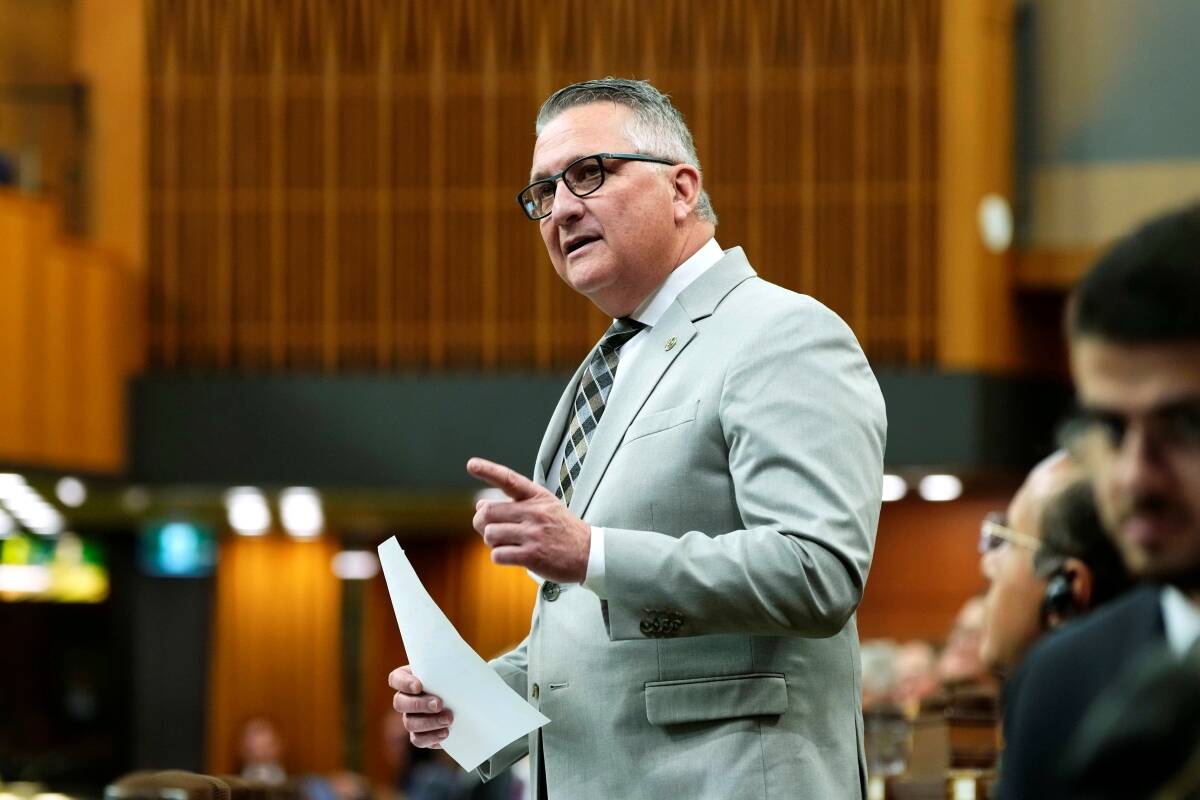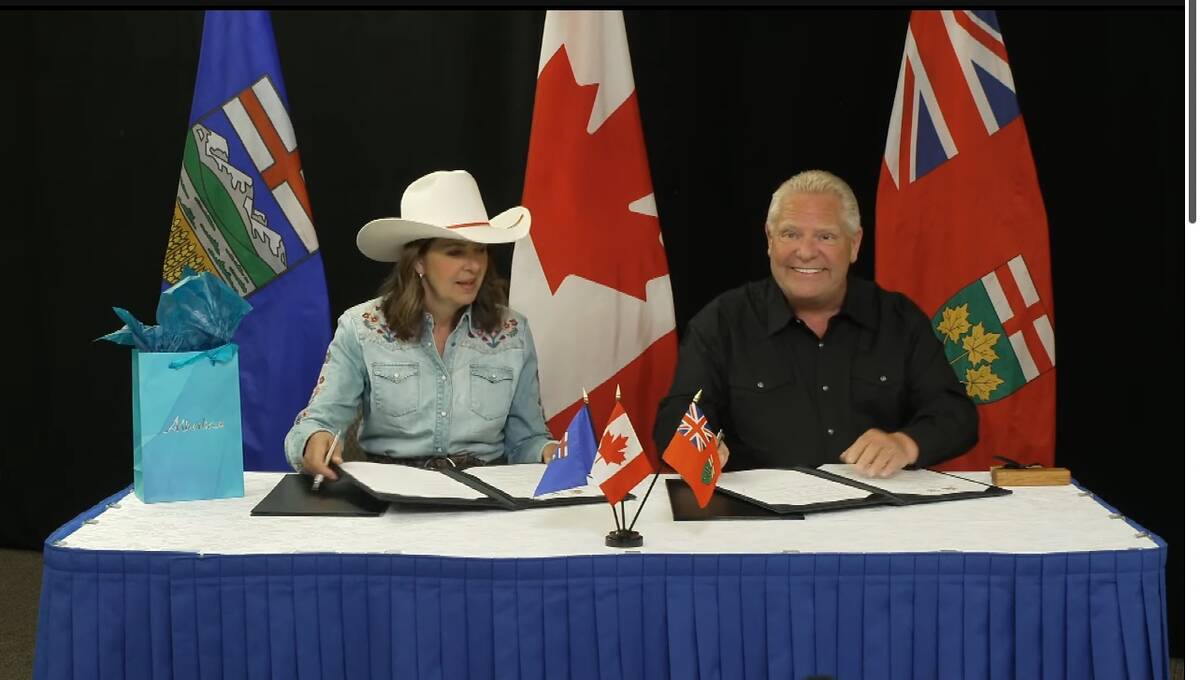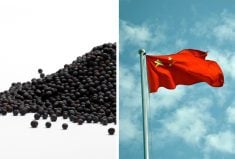Glacier FarmMedia — Ontario and Alberta have signed agreements to build new trade infrastructure between the two provinces.
Premiers Doug Ford and Danielle Smith signed two Memorandums of Understanding (MOUs) Monday in Calgary. The agreements are mostly focused on the exchange of energy and minerals, though they could also open new trade routes between Western and Eastern Canada.
Why it matters: U.S. tariffs and interprovincial trade barriers remain among the biggest barriers for trade stability and profitability in agriculture.
Read Also

Canada, Mexico look beyond U.S. as agri-food trade pact expands
Earlier this week Heath MacDonald, Canada’s Minister of Agriculture and Agri-Food and Mexico’s Secretary of Agriculture and Rural Development, Julio Berdegué, met to discuss bilateral relations and strengthen cooperation and trade ties between the two countries.
The agreements will “open new markets and create thousands of new jobs across Canada” and diversify trading partners, Ford said.
Smith said the MOUs are meant to advance pipelines and pathways for exports of energy and critical minerals to markets across Canada and the world.
“Through this agreement, we’ll work together to explore ways to improve network corridors that better connect our energy and critical minerals to markets here at home as well as around the globe.”
Smith said Alberta is seeking to add more rail lines to increase access to Ontario in areas like the Ring of Fire, refineries in southern ontario and a deep-water port in James Bay.
“Let’s get some icebreakers in there, maybe build out some additional rail and road infrastructure, and it could be a multi-purpose port, not just for oil … but also food, fibres, manufactured goods, critical minerals,” she said.
She said this would allow shipping not only to Canada’s East Coast but also to trade partners in Europe.
“Let’s work on that. And maybe I’ll sign another MOU with my friend Francois Legault (Premier of Quebec) at some later point to see if we can get further east.”
Ford said the MOUs between the two provinces are critical at a time when U.S. tariffs are still threatening trade in Canada.
“President Trump’s tariffs and the economic uncertainty they’ve created, they’re hurting workers and businesses in every part of our great country,” he said. “Steel makers and aluminum workers in Ontario and Quebec, fishermen and women in B.C. and Atlantic Canada, farmers across the Prairies, including right here in Alberta.”
“We’re doing this because we need to unlock the full potential of our economy. We need to tear down the barriers and red tape that have held us back for far, far too long,” he added. “This is how we make ourselves less reliant on the United States. This is how we secure the future of Canada.”
The two provinces will also launch a joint feasibility study to determine the best strategies, financing and endpoints for these projects.
Monday’s signings come as Ontario has made efforts to reduce trade barriers with other provinces, including last month’s agreement with Saskatchewan.
















